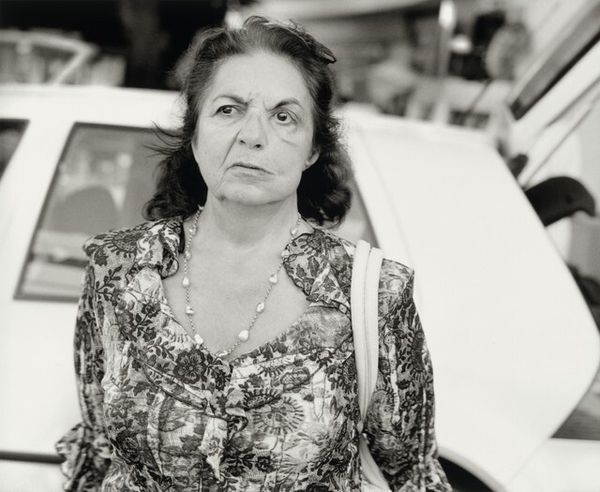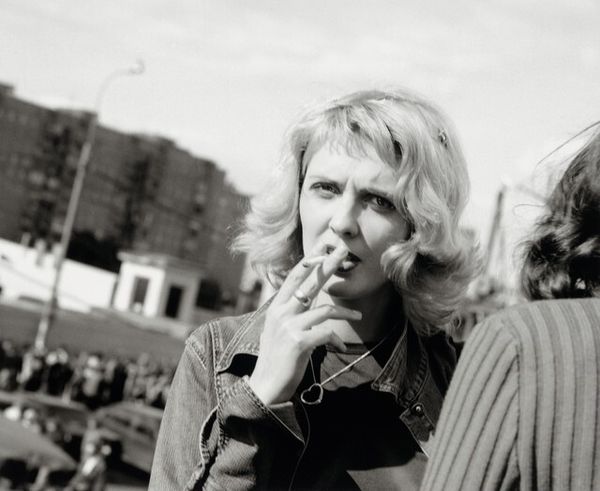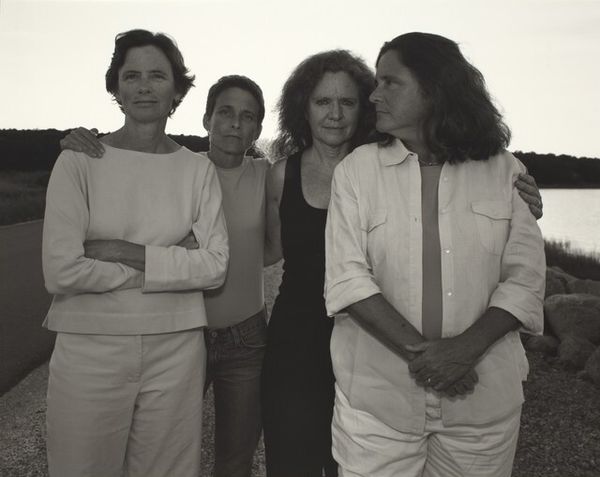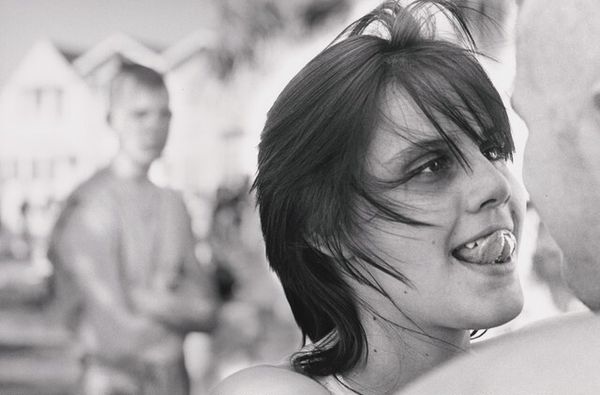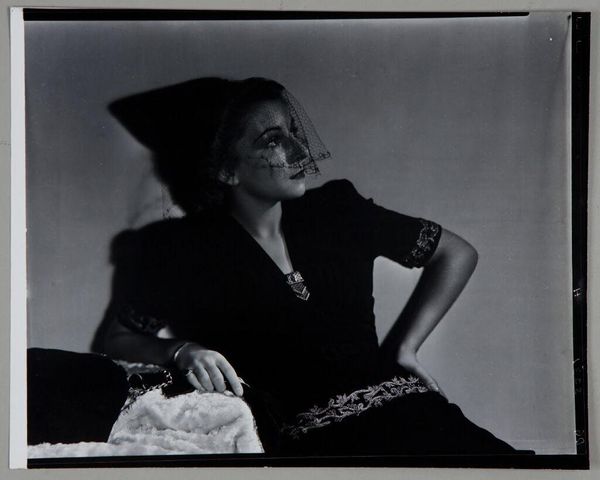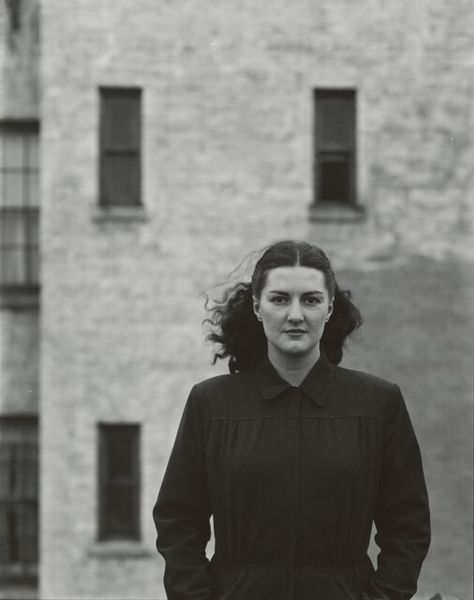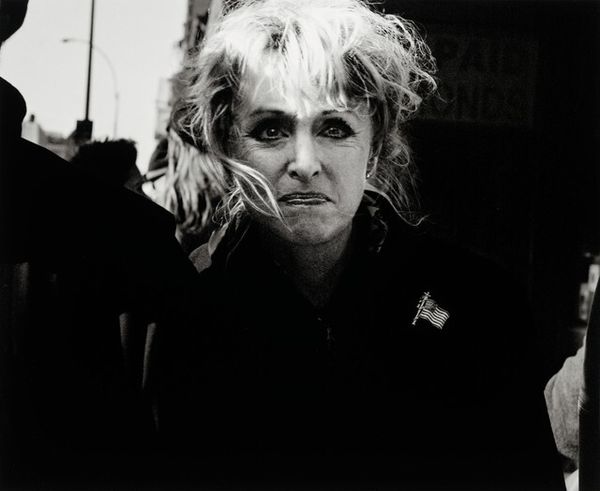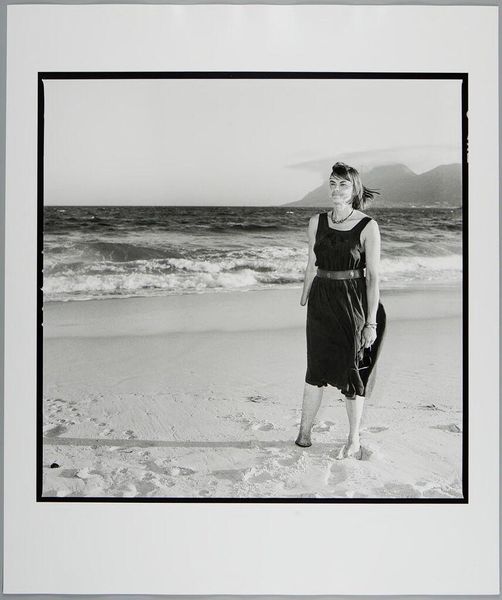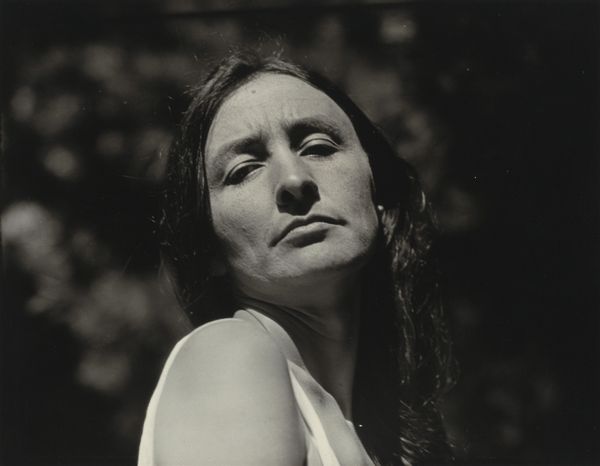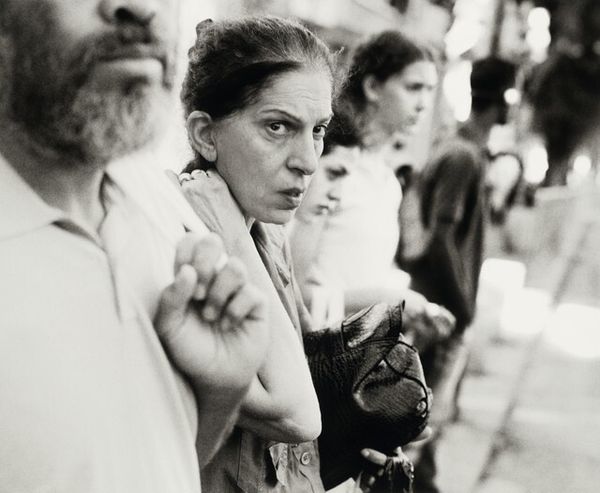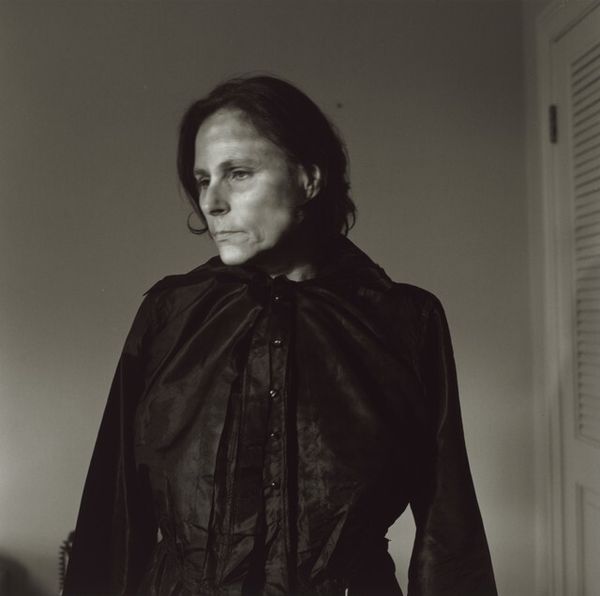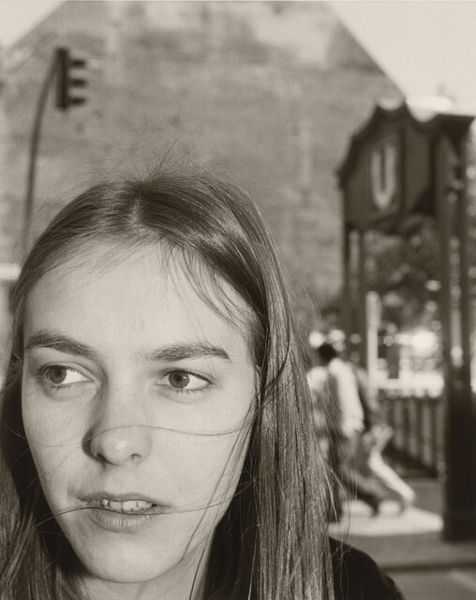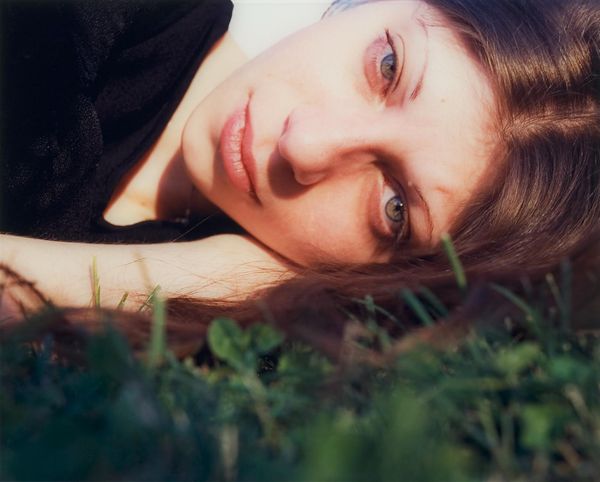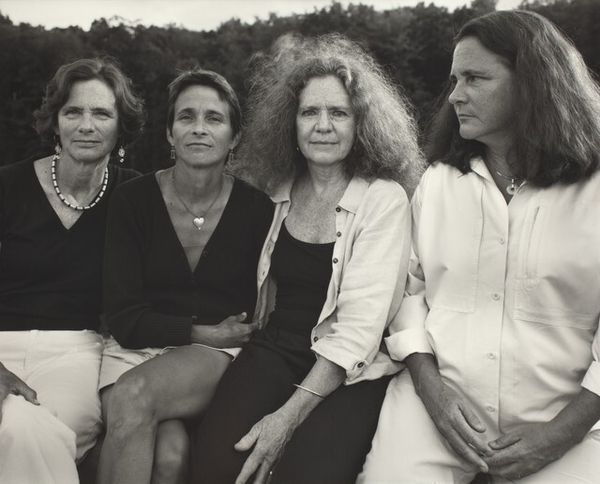
Tel Aviv, 2005, on the beach near Frishman Street Possibly 2005 - 2014
0:00
0:00
photography, gelatin-silver-print
#
portrait
#
black and white photography
#
photography
#
gelatin-silver-print
#
monochrome photography
#
cityscape
#
modernism
Dimensions: image: 40.64 × 49.53 cm (16 × 19 1/2 in.) sheet: 58.42 × 67.31 cm (23 × 26 1/2 in.)
Copyright: National Gallery of Art: CC0 1.0
Curator: Looking at Leo Rubinfien’s black and white photograph, titled "Tel Aviv, 2005, on the beach near Frishman Street," created in gelatin-silver print between roughly 2005 and 2014, I am struck by its juxtaposition of personal introspection against an urban landscape. What are your initial impressions? Editor: I'm immediately drawn to the subject's gaze – she seems to be looking towards the future with a blend of hope and perhaps some trepidation, against the somewhat harsh reality of the beach that looks rather abandoned. The modern backdrop certainly influences the overall feel; I want to examine the contrasts this photo explores, what kind of narrative the artist sought to convey, and how it interacts with ideas of gender, labor, and space. Curator: Absolutely, and it invites conversation about how private life interacts with a society rapidly developing within its landscape, where women play a complex role as it transforms, with leisure clashing with economic forces in constant evolution. The beach setting provides an ironic space: a place typically associated with relaxation that sits within view of commercial properties, a narrative the subject, her style and facial expressions enhances with every element. Editor: Definitely. Notice how her formal attire clashes with the relaxed setting, almost like she stepped away from an important appointment to stand here. Rubinfien perhaps means to highlight the intersectionality of life where work and personal moments blur; it touches on the expectations placed on working women within societies undergoing massive construction projects. How do we see ourselves when reflecting in an open arena that might symbolize opportunity but at the same time is revealing the true challenges that development creates? Curator: I agree. It almost visualizes a transitional state for a modern city, where a generation of women navigates opportunities yet confronts underlying disparities and inequalities. What I love is that even in this modern urban composition there’s a quiet human quality: a moment of stillness where the subject considers it all as society and development rushes by. It certainly compels you to ask significant questions about modern societies, gender expectations, progress and purpose, while also displaying an essential moment for modern city occupants. Editor: A moment worth investigating because the power dynamic seems to suggest transformation where an image offers critical insight through intimate observation blended with societal elements--making its mark more deeply than what one might anticipate. The photo remains significant as social investigation with intimate portraiture in monochrome medium offering insight.
Comments
No comments
Be the first to comment and join the conversation on the ultimate creative platform.
